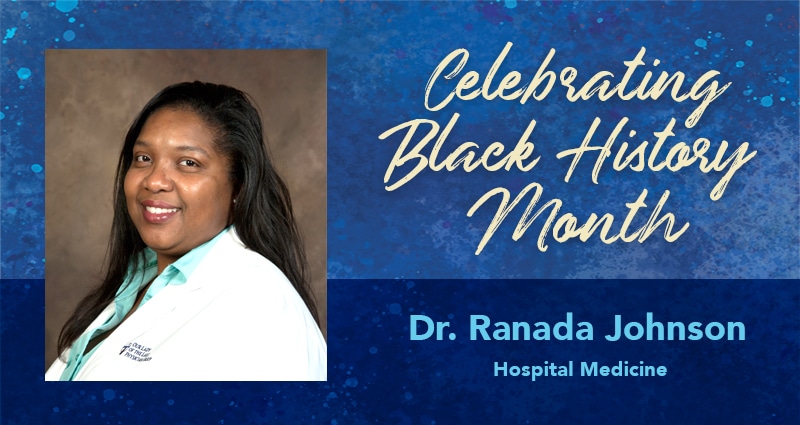“If you can’t fly, then run. If you can’t run, then walk. If you can’t walk, then crawl, but whatever you do, you have to keep moving forward.”
This quote from Dr. Martin Luther King Jr. is a favorite of Ranada Johnson, MD, who has been a hospital medicine physician in our health system for five years. In this role, she admits patients and facilitates their care, coordinating with other specialists in the system so patients receive the care they need and deserve.
Dr. Johnson’s journey to healthcare began when she was 12. An older cousin had her baby very early, after only six months of pregnancy. The baby weighed less than 2 pounds. Dr. Johnson was amazed at the care the baby was being provided. It inspired her to research careers in medicine.
She initially began medical school with the intent of being a neonatologist. During her medical training Dr. Johnson felt called to add adult care to her duty. She is a medicine and pediatrics trained physician.
Diversity in the workplace is important to Dr. Johnson. “We come from different aspects/walks of life,” she says. “Having exposure to all backgrounds helps one understand how to properly treat and understand another individual.
“Black History Month means the legacy of our people will not be forgotten,” she says. “It reminds everyone that we have all contributed to society.”
Dr. Johnson takes care of her health in many ways. She sees her primary care doctor yearly to obtain routine labs. She also ensures her age-appropriate cancer screenings are performed as recommended. She takes walks during her time off and eat lots of fruits and vegetables. She also as “me” time where she mediates and has alone time to think.
Her career was most influenced by Dr. Pamela C. Williams. “She was the executive vice dean at Meharry Medical College,” Dr. Johnson says. “Dr. Williams developed objective structured clinical examination (OSCE) for students at Meharry. She was our biggest supporter. Many students from Meharry graduated because of how much she cared and challenged us.”




